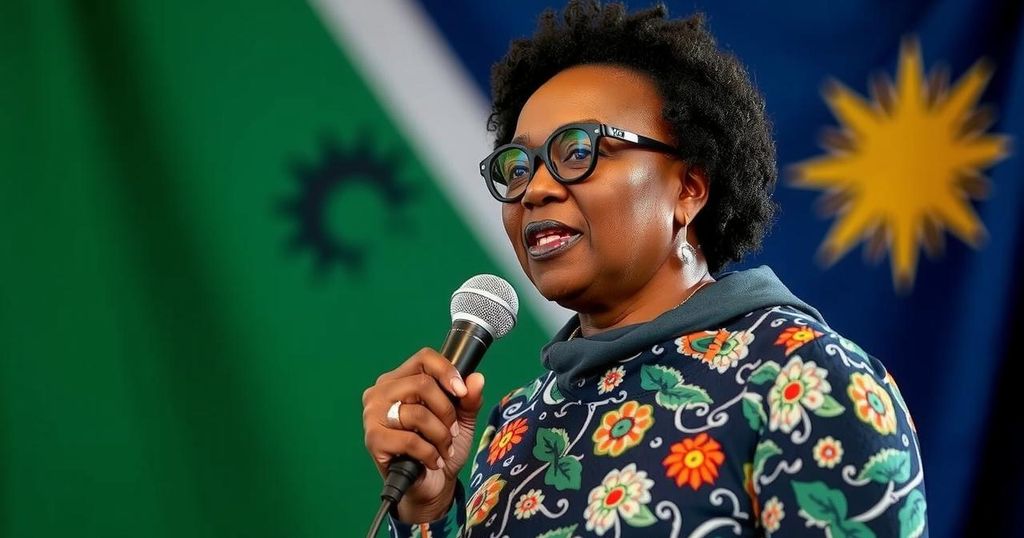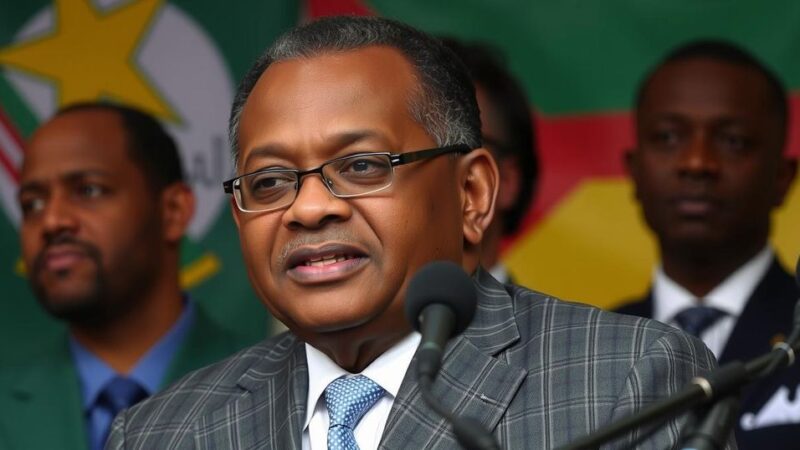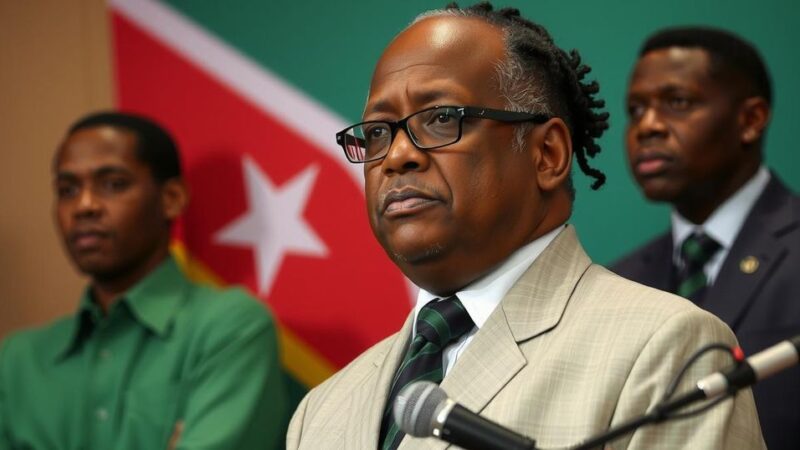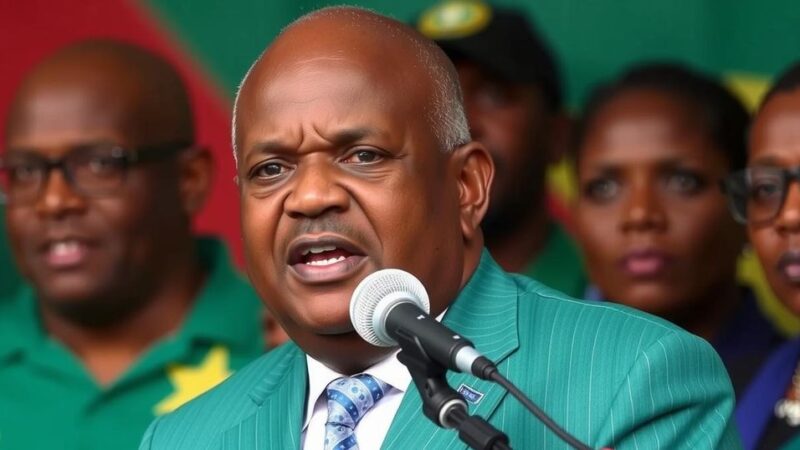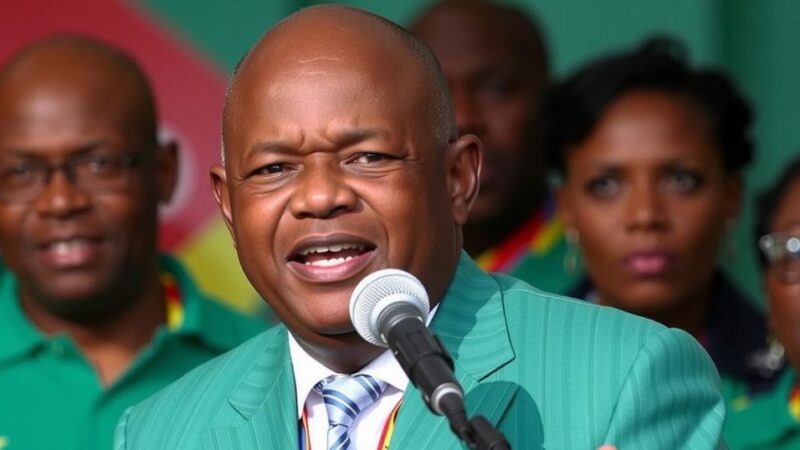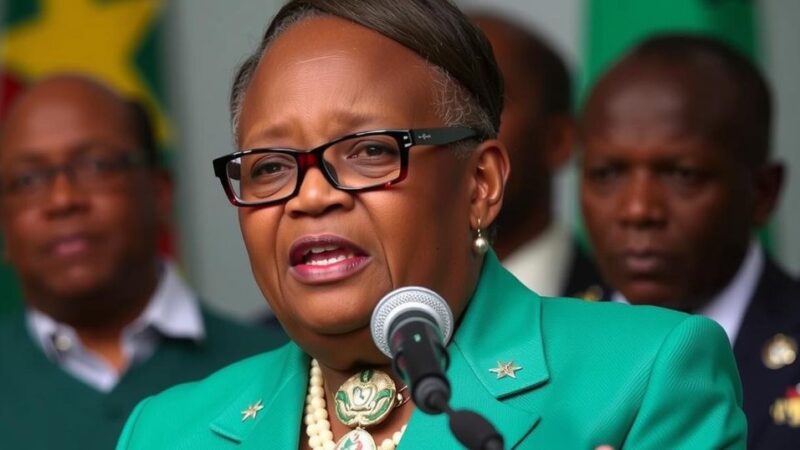Namibia has elected Netumbo Nandi-Ndaitwah as its first female president, winning 57% of the vote in a contentious election that extended the ruling Swapo party’s long-standing dominance. Opposition parties have disputed the election’s legitimacy due to technical difficulties and illegal extensions of voting. Nandi-Ndaitwah’s election occurs at a time when younger voters in southern Africa are challenging traditional political establishments.
Namibia has made history by electing Netumbo Nandi-Ndaitwah as its first female president, succeeding in the most recent presidential election held last week. The announcement of her victory was confirmed by official results indicating that she garnered 57% of the votes, successfully consolidating the ruling Swapo party’s 34-year dominance since the nation gained independence from apartheid South Africa in 1990. Nandi-Ndaitwah, a veteran political figure and the incumbent vice-president, expressed her commitment to the country’s stability following the declaration of results late Tuesday night.
At the age of 72, Nandi-Ndaitwah previously engaged in the underground independence struggle in the 1970s and was appointed vice-president after the death of President Hage Geingob. Despite the successes for the ruling party, the election faced considerable discontent from opposition parties, which have challenged the legitimacy of the results. Claims of irregularities, including technical malfunctions and ballot paper shortages, led to an extended voting period, which opposition factions regard as unauthorized, intending to contest the outcome in court.
Prominent opposition candidate Panduleni Itula, a former dentist who returned from the United Kingdom, finished second with 25.5% of the votes, a steep decline from his previous performance in 2019. Nandi-Ndaitwah’s win contrasts with the overall drop in support for the Swapo party, which accumulated only 53% of the parliamentary votes compared to 65% in the previous elections. Notably, her election comes at a time when younger voters in southern Africa are increasingly turning away from long-term ruling parties, as seen in recent elections in South Africa and other nations in the region.
The election of Namibia’s first female president marks a significant milestone in the country’s political landscape, highlighting advancements in gender representation within leadership roles. Netumbo Nandi-Ndaitwah’s ascent follows a protracted period of political stability under the ruling Swapo party, which has maintained power since Namibia’s independence in 1990. The election process, however, was complicated by various electoral challenges that has raised concerns among opposition factions, setting the stage for potential legal disputes regarding the validity of the results.
The election of Netumbo Nandi-Ndaitwah as Namibia’s first female president signifies a pivotal moment in the nation’s political history while concurrently illustrating the complex dynamics of power between ruling and opposition parties. As she assumes leadership amidst allegations of electoral mismanagement, the path forward for both the Swapo party and opposition groups remains uncertain, particularly in light of shifting voter behavior in the region that increasingly favors change over the status quo.
Original Source: www.theguardian.com

